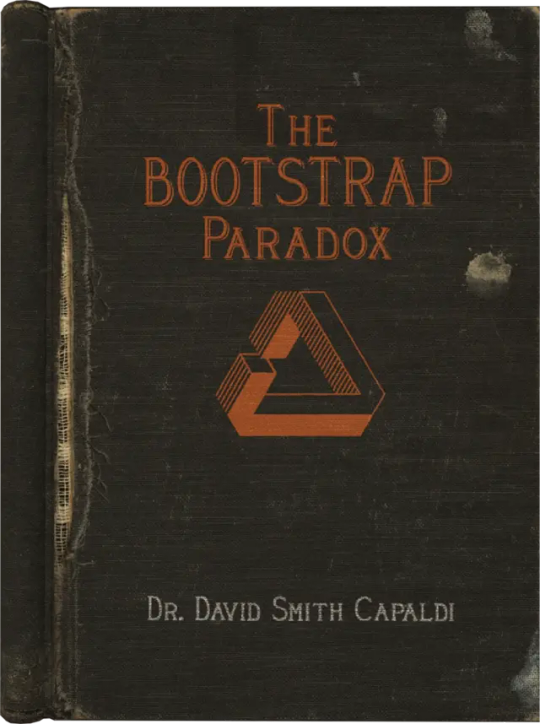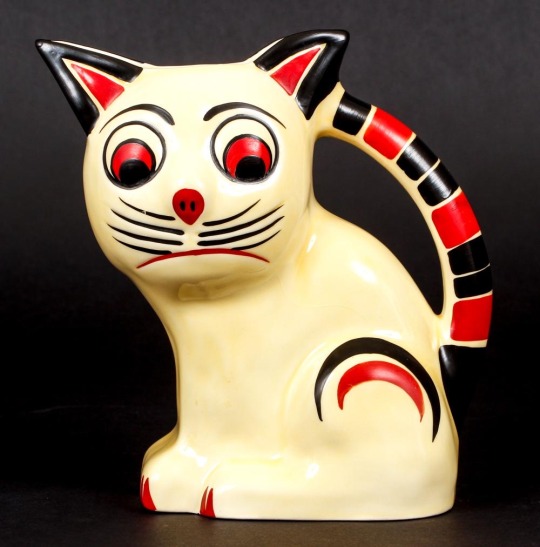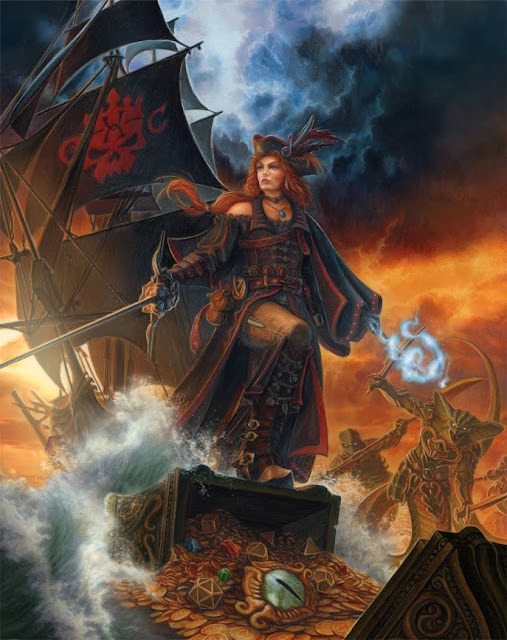#urbach
Explore tagged Tumblr posts
Text
Okay so an interesting thing to me about some of the offices in the Underground is that there's only two books there, both of which appear to be references, both to pop culture things and also real concepts that tie in with the game.

The first one is The Bootstrap Paradox by Dr. David Smith Capaldi, found in Diogo and Jorge Laiks' room. The author is pretty obviously a nod to several Doctor Who actors-- David Tennant, Matt Smith, Peter Capaldi; respectively, the Tenth, Eleventh, and Twelfth Doctors. Cellbit is a pretty big Doctor Who fan, and likely these are a few of his favorite Doctors. Cute little reference, especially when it comes to the title of the book and the nature of time within the game.
Getting to that title-- a bootstrap paradox is a type of time paradox that specifically refers to when an event (or a series of events) causes itself. That is to say, because it happened already, it will happen, because it creates itself. Which is, of course, the entire nature of the cycle that takes place within Enigma do Medo. This is a very smart reference and I think it's a fun nod to the whole structure of the game and the narrative to have this here, especially in Diogo and Jorge's room since they were involved with the Spiral and the time element of the Enigma.

The second book in the Underground is in the Unhaunted One's Wing, titled Mind Syndromes and Conditions by Jonas Urbach-Wiethe. This book makes sense for a couple reasons-- firstly, it ties in with Sofia's specialty in neuropsychology, setting up her role and relationship with Jaser. Secondly, this, like The Bootstrap Paradox, is not a real book-- it's invented for the sake of the game, and while the title isn't specific enough to refer to anything in particular, at least in my view, the author's name gives us more info.
Jonas Urbach-Wiethe is not real, but the name Urbach-Wiethe is-- it refers to Urbach-Wiethe disease, a genetic disorder with neurological and dermatological conditions. The dermatological symptoms typically include scarring easily, leading to patients having more and more scars over time, and people can also struggle with speech impediments due to thickening of tissue in the throat and tongue. In terms of neurological symptoms, Urbach-Wiethe can lead to calcified growths in the brain, particularly affecting the amygdala. To quote from Wikipedia, "The amygdala has a primary role in the processing of memory, decision-making, and emotional responses (including fear, anxiety, and aggression)."
If it's not clear, these symptoms line up with Jaser's-- being covered in scars, having difficulty speaking, and not feeling fear or other strong emotions. This is not to say I think Jaser is representative of the experience of having Urbash-Wiethe disease-- I have no idea what that's like, and from my understanding it's an extremely rare condition. Regardless, I'm not sure if this is just a nod to a disease that strongly resembles Jaser's situation, or if we're meant to assume that perhaps Sofia thought this is what Jaser had. Either way, it's certainly an interesting reference.
#bell.txt#enigma do medo#edm spoilers#looking up urbach and wiethe on their own dont get much tbc#urbach can also refer to a certain type of energy in semiconductors? so thats kind of fun#but i doubt its really that relevant
28 notes
·
View notes
Photo

Ghor-Clan Rampager
"The Simic come from the cold slow depths. How could they understand the fire in a wild heart?" —Kroshkar, Gruul shaman
Artist: Charles Urbach TCG Player Link Scryfall Link EDHREC Link
18 notes
·
View notes
Text
#Caturday:

Ditmar-Urbach for Erphila, Czechoslovakia
Handled Cat Pitcher, c.1930s
glazed and hand painted ceramic, 7.75 x 7.75 x 4.25 in.
#animals in art#european art#20th century art#Art Deco#Ditmar Urbach#cat#cats in art#Caturday#ceramics#Czech art#pitcher#1930s#modern art
33 notes
·
View notes
Text

Not All Treasure is Gold by Charles Urbach
17 notes
·
View notes
Text










Some, oh so pretty, Czech ceramic pieces I’ve been lusting after.
28 notes
·
View notes
Text

The Pirate Queen by Charles Urbach
19 notes
·
View notes
Text

'The Pirate Queen' by Charles Urbach
#Art Of The Day#Art#AOTD#Charles Urbach#Female#Feminine#Pirate#Fanttasy Art#Fantastical Art#Imaginative Realism
13 notes
·
View notes
Text
𝕱𝖊𝖆𝖗 𝖊𝖝𝖕𝖑𝖆𝖎𝖓𝖊𝖉
𓆩♱𓆪 𓆩♱𓆪 𓆩♱𓆪 𓆩♱𓆪
𝕯𝖊𝖋𝖎𝖓𝖎𝖙𝖎𝖔𝖓
Fear (noun) - an unpleasant emotion caused by the threat of danger, pain, or harm.
Fear is a primal emotion, that is to say one of the most basic emotions humans feel (as well as happiness, love, sadness, anger, for instance.)
Fear causes biochemical responses that will provoke behavioral reactions, physical as much as emotional (see Physiological signs & Fight, Flight, Freeze, Fawn).
Fear is triggered by stimulus occurring in the present, in anticipation, or expectation of a risk or a threat to one’s safety, whether it is physical, psychological, real, or imagined. A rational and appropriate fear is called a fear. An irrational and inappropriate fear is called a phobia, and falls under the umbrella of Anxiety Disorders.
𝕻𝖍𝖞𝖘𝖎𝖔𝖑𝖔𝖌𝖎𝖈𝖆𝖑 𝖘𝖎𝖌𝖓𝖘
When stressed, the brain and more precisely the hypothalamus, the area of the brain responsible for body hormone control, releases epinephrine, also known as adrenaline. It causes various types of physical responses such as:
Dilated pupils
Tense muscles
Shaking limbs
Stomach pain
Nausea
Sweating
Quickened heartbeat
Increase in blood pressure
Rapid breathing
Feeling choked
More explanation on healthline, “Fight, Flight, Freeze: What this response means.”
Those signs help your body analyze more stimulus (dilated pupils), or to make your muscles more vascularized to be ready for a run or a fight for instance.
There also are side effects such as nausea and stomach pain caused by the release of adrenaline in the system.
Overall the goal of those physical reactions is to make you aware that you are in danger and ready to face it through psychological and physical response.
𝕮𝖆𝖚𝖘𝖊𝖘
There is a theory as for the appearance of fears; some would be innate and others acquired.
An innate fear is a fear acquired without any learning of how dangerous it can be. For example, most people have a natural fear of loud noises, pain or fear heights. Those are coded in our DNA through evolution as survival techniques, and/or transmitted in genes.
An acquired fear has been learned through experience or conditioning, for instance being scared of spiders, crowded-spaces or clowns. Those fears appear after stimulus causes intense fear, so much so that the brain retains it as a threat.
𝕱𝖎𝖌𝖍𝖙, 𝕱𝖑𝖎𝖌𝖍𝖙, 𝕱𝖗𝖊𝖊𝖟𝖊, 𝕱𝖆𝖜𝖓
Those responses are caused by hormonal and physiological changes, allowing the body to protect itself from threats. They are survival instincts we gained from our ancestors who lived in dangerous environments.
The fear response cannot be anticipated. It is not a matter of willpower, but a matter of brain chemistry. Some people may fight against assault but freeze facing a light car crash. The response is proper to each and everyone’s brain and psychology (heavily based on their traumas and acquired fears).
Responses have both emotional and physical responses.
𝕱𝖎𝖌𝖍𝖙 𝖗𝖊𝖘𝖕𝖔𝖓𝖘𝖊
Tight jaw or grinding teeth
Urge to punch, kick, stomp
Intense anger, homicidal or suicidal thoughts
Crying
Glaring
Upset stomach (caused by adrenaline)
High energy
Confrontation
Ultimately, feeling ready or attacking the source of danger.
𝕱𝖑𝖎𝖌𝖍𝖙 𝖗𝖊𝖕𝖔𝖓𝖘𝖊
Excessively exercising
Being fidgety, tense or trapped
Constantly moving
Restlessness
Numbness in extremities
Dilated, darting eyes
Anxiety/Panic
Avoidance
High energy
Ultimately, feeling ready to run away.
𝕱𝖗𝖊𝖊𝖟𝖊 𝖗𝖊𝖘𝖕𝖔𝖓𝖘𝖊
Pale skin
Sense of dread
Dissociation
Shutdown
Low energy
Feeling stiff, heavy, cold, numb
Loud pounding heart
Decreasing in heart rate
Sensing tolerated stress
Ultimately, feeling unable to move or act.
𝕱𝖆𝖜𝖓 𝖗𝖊𝖘𝖕𝖔𝖓𝖘𝖊
Finding self expression challenging
Not being able to say “no”
Over-apologizing
Holding back opinions that may be controversial
Trying to be a “fixer”
Attempting to control other’s choices to maintain some sort of emotional safety
Denying own discomfort, complaints, pain, needs and wants
The fawn response may be used after unsuccessfully trying one or several of the three options above. This response is more observed in those who grew up in abusive families or situations and suffer trauma from it.
When fawning, one abandons their own needs to serve others’ so that to avoid conflict, criticism or disapproval.
𝕯𝖔𝖊𝖘 𝖊𝖛𝖊𝖗𝖞𝖔𝖓𝖊 𝖋𝖊𝖊𝖑 𝖋𝖊𝖆𝖗
Fear is a primal emotion, meaning it is inherent to a healthy human brain. However, some people may either feel little fear, and in very rare cases, no fear at all.
The Urbach-Wiethe disease is an extremely rare syndrome (400 cases listed since the early 20th century) caused by a gene mutation. In most cases, it changes appearance, causing the appearance of papules (bumps under the skin) around the eyes, plaques, lesions or scars, a hoarse voice, but also the calcification of cerebral tissue. This calcification may lead to complete annihilation of fear.

(On the left, a patient with a healthy brain. On the right a patient suffering from the Urbach-Wiethe disease, with an amygdala calcification.)
The Urbach-Wiethe disease came to my knowledge after reading a novel where the main character suffers from it: “Promets-moi d’avoir peur” by Frédéric Lepage. For those of you who can read French and are interested, I shared an Amazon link into the sources below.
Here is a short translation of the diagnosis scene explaining some symptoms as well as the history of the disease.
𓆩♱𓆪 𓆩♱𓆪 𓆩♱𓆪 𓆩♱𓆪
“The disease we are thinking of,” he explains, ”appears more frequently on caucasian with german of south-african origins.”
He approaches Luna and, from the very tip of his fingers, lowers, one after the other, his upper eyelids.
“At the crease of your eyelids, you have two or three minuscule skin excrescences, some sorts of little bubbles. It is another clue.”
“A clue of what?”
Just as Jasmine did two days earlier, he slightly pinches Luna’s cheek between his fingers and looks closer at the crease it creates.
“The skin is dry, but not lumpy yet,” he says, turning around to Jasmine who nods.
“You didn’t answer me,” she insists. “A clue of what?”
Kane takes his gloves off, places them back into their plastic cover and throws them into the trash can.
“In 1929, a dermatologist and an otorhinolaryngologist from Vienna treated, each on their own, the same patient. The first one, for a stiffening of the skin. The second one, for a voice illness, making it hoarse. The first doctor was named Erich Urbach, the other, Camillo Wiethe. To all appearances, symptoms had nothing in common. However, they realized they were simultaneously observed on a few other patients, ever since 1908.”
“I see how this relates to me,” questions Luna, “but I’m not sure why. It can’t be that because I have some lumps on my eyelids that I’m becoming a textbook case?”
“There is something else. We quickly noticed that a certain behavioral disorder could add up to those symptoms.”
“You must guess which one,” whispers Jasmine Coleman, holding Luna’s hand.
“The absence of fear?”
“Yes,” answers Kane, “a calcification of the amygdala, which provokes a gradual loss, partial or total, of the feeling of fear.”
𓆩♱𓆪 𓆩♱𓆪 𓆩♱𓆪 𓆩♱𓆪
𝖂𝖗𝖎𝖙𝖎𝖓𝖌 𝖙𝖍𝖊 𝖆𝖇𝖘𝖊𝖓𝖈𝖊 𝖔𝖋 𝖋𝖊𝖆𝖗
Once again, I will here translate a extract of the book that captures the absence of fear, and how it impacts the character’s life. It may not be the greatest scene to display the illness, but I chose a spoiler free scene.
The main character went on a roller coaster with her nephew, and the latter goes to pick up a picture taken during the amusement ride. Here you can see the difference between her and people who feel fear.
𓆩♱𓆪 𓆩♱𓆪 𓆩♱𓆪 𓆩♱𓆪
Theo rushes to the stall where lay photographs taken by an automatic camera during the big fall. They are for sale for fifteen dollars. At the time of the capture, speed isolates one expression: the pure spirit of fear. In the picture, the kid exhibits a face deformed by fright, bulging eyes, contracted jaws, his neck muscles tense like strings. Luna, herself, only has a face changed by the acceleration. The skin stretches to the back, a flow of air forces its way between her lips and fills her cheeks, her hair is flattened against the headrest, but nothing in her betrays dread. Her eyes linger on the scenery. Her posture doesn’t show any other tension than physical, provoked by inertia. Luna gives herself over to entertainment more than she suffers a torment. On the little train loaded with thrilled others that fear would retrospectively make them reach climax, she only remains impervious. Her eyes could be checking up on her make up thanks to a pocket mirror, her expression at the worst timing of the attraction wouldn’t be so much different.
It takes Luna a couple of seconds to recognize herself in this shut and sourpuss character who excludes the collective emotion. She takes a look a little closer, somehow ashamed. On the glazed paper, this woman, stranger to the fear that elates his companions, who wonders about something else while anxiety paralyzes Theodore, that’s her. She’s already known, sometimes, this indifference to communal fear, but for the first time, she feels it like a disability, because it took away a moment of complicity with her nephew.
𓆩♱𓆪 𓆩♱𓆪 𓆩♱𓆪 𓆩♱𓆪
𝕿𝖍𝖊 𝖊𝖓𝖉
Thank you for reading me, I hope you learned a thing or two that may help with your writing.
If you have any questions, related or not, you would like me to touch on, feel free to message me on Instagram at ecriture_inattentive.
Warm regards,
𝕰𝖈𝖗𝖎𝖙𝖚𝖗𝖊 𝖎𝖓𝖆𝖙𝖙𝖊𝖓𝖙𝖎𝖛𝖊.
𓆩♱𓆪 𓆩♱𓆪 𓆩♱𓆪 𓆩♱𓆪
𝕾𝖔𝖚𝖗𝖈𝖊𝖘
Fear - Wikipedia
The psychology of fear - Verywellmind
Signs of fear - WebMD
How your heart reacts to fear - Main Line Health
Why do we sweat when we're anxious? - Sciencefocus
Can anxiety cause sweating? - Psych Central
What is the link between anxiety and nausea? - Medical news today
The psychology of fear and stress - Jeffrey Alan Gray
Fight, flight, freeze: what this response means - Healthline
Fight, flight, freeze, or fawn: how we respond to threats - Simply Psychology
Fight-Flight-Freeze - Anxiety Canada
The fawn response: how trauma can lead to people-pleasing - Psych Central
Urbach-Wiethe syndrome - National Library of Medicine
What is Urbach-Wiethe disease? - Brain Stuff
Promets-moi d'avoir peur, Frédéric Lepage - Amazon
Urbach-Wiethe disease - Wikipedia
What have we learned from patient SM about fear and the amygdala - Brain Stuff
3 notes
·
View notes
Text
Hey you know if anyone here has the opportunity you should totally go see the new Aida production in NL
Cause yeah they sort of butchered it by 'updating' the music and changing a couple plot points, but hear me out
Gaia is a fucking SUPERSTAR like holy shit that woman can do no wrong
And also I am so unbelievably proud of Terra, girl nailing it every single time I was just GLOWING in the pits when her solo came on ;-;
It's gonna close soon because Frozen will come but until then I will just be there cheering her on 💙💛
3 notes
·
View notes
Text
Wisseltrofee De Graaf & Cornelissen Entertainment naar Terra Luna Urbach en Stijn Holewijn
De Wisseltrofee van De Graaf & Cornelissen Entertainment gaat dit jaar naar Terra Luna Urbach en Stijn Holewijn voor hun waanzinnige (dans)presentatie als Latin-koppel in Saturday Night Fever. Terra is volgend seizoen te zien als Francesca in de musical WEST SIDE STORY. Creatief producent Hans Cornelissen: ” Terra en Stijn waren uitzonderlijk. Het niveau qua dans was sowieso hoog in Saturday…
0 notes
Text
A Step-by-Step Guide To Getting A Dental Crown In Houston, TX
Discover the step-by-step process of getting a dental crown in Houston, TX. Visit Urbach Pediatric Dentistry for expert dental care.
0 notes
Video
TELEMANN, Paul. Regina Marsch von Ernst Urbach, 1921. by Halloween HJB
#Paul Telemann#vintage sheet music#Regina#march#Ernst Urbach#female figure#drum#musician#Art Deco#Jazz Age#flickr
0 notes
Text
New research shows previously unknown way light interacts with matter
New research shows previously unknown way light interacts with matter #research #photoemission #semiconductor #silicon #photon #optical
In a recent issue of ACS Nano, researchers have discovered a previously unknown way that light interacts with matter. In the finding, photons can obtain substantial momentum, much like electrons in solid material, when confined to nanometer-scale spaces within silicon. This discovery may lead to improved solar panels, LEDs, lasers, and a variety of other technological advancements. The paper’s…

View On WordPress
#ACS Nano#Compton scattering#electronic#glass#laser#led#light#momentum#optical#photon#photons#Raman scattering#research#semiconductor#silicon#spectroscopy#structural#Urbach bridge
1 note
·
View note
Text
Nyaleg Lewat NasDem, Artis Cantik Nafa Urbach Siap Bertarung di 2024
JAKARTA | KBA – Artis cantik Nafa Indria Urbach atau Nafa Urbach dinyatakan sah menurut hukum untuk menggunakan nama Nafa Urbach pada Surat Suara di Pemilihan Umum 2024 nanti. Keputusan itu tertuang dalam amar penetapan berdasarkan permohonan nomor 486/Pdt.P/2023/PN.Jkt.Brt yang didaftarkan melalui Kuasanya Regginaldo Sultan., S.H., M.H., M.M, Ucok Edison Marpaung., S.H. Dkk dalam Badan Advokasi…

View On WordPress
0 notes

